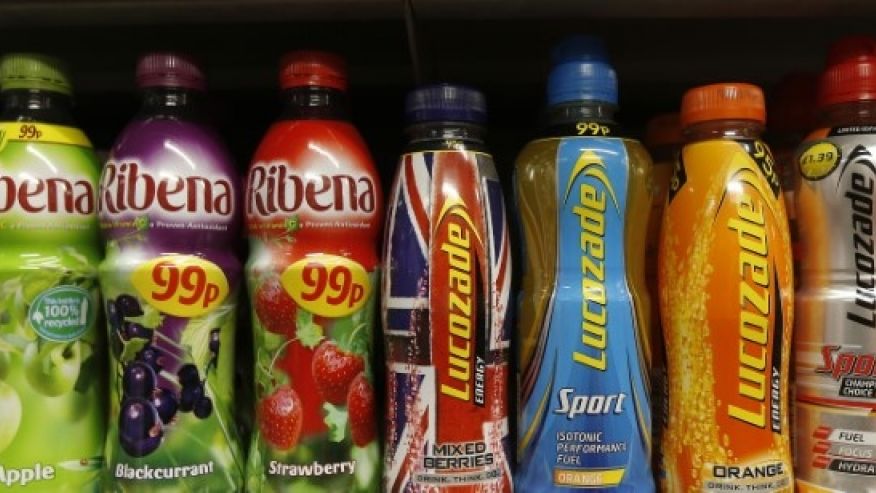Study finds UK sugar tax could save thousands from obesity, diabetes

File photograph of soft drinks bottles displayed on a shelf in a shop in London (Copyright Reuters 2016)
LONDON – A planned levy on sugary drinks due to be introduced in Britain in April 2018 could significantly reduce the number of people who become obese and develop diabetes and tooth decay, scientists said on Thursday.
In a study on the levy’s health impacts, researchers found the positive effect would be greatest if the drinks industry responds by reformulating products to cut sugar content, rather than keep the same formulations but raise prices to consumers.
The planned levy is tiered, starting from no tax on diet and low sugar drinks, a low tax on mid-sugar drinks containing 5 to 8 grams (g) of sugar per 100 millilitres (ml), and a high tax on very sugary drinks containing 8g or more per 100 ml.
The government’s health department says sugary drinks are the single biggest source of sugar for children, who can have more than their recommended daily intake just by drinking a can of cola, which has nine teaspoons of sugar.
The scientists studied three possible reactions by companies to the levy. They could reformulate drinks to reduce sugar content, pass some of the levy to consumers by raising the price of sugary drinks, or use marketing to encourage consumers to switch to lower sugar drinks.
The Lancet Public Health journal published the results.
For each scenario, the researchers mapped a realistic better and worse case scenario for health by estimating the likely impact on rates of obesity, diabetes and tooth decay.
“The good news is that our study suggests that all of the most likely industry responses … have the potential to improve health,” said Adam Briggs of Oxford University, who led the study. “The extent of the health benefits of the tax will depend on industry’s response.”
In opting for a sugar tax, Britain joins Belgium, France, Hungary and Mexico, all of which have imposed some form of tax on drinks with added sugar. Scandinavian countries have levied similar taxes for many years.
According to the study’s modeling, a 30 percent reduction in sugar content of all high-sugar drinks and a 15 percent reduction in mid-sugar drinks could result in 14,400 fewer adults and children with obesity, 19,000 fewer cases of type 2 diabetes a year, and 26,900 fewer decaying teeth annually.
[“source-ndtv”]




